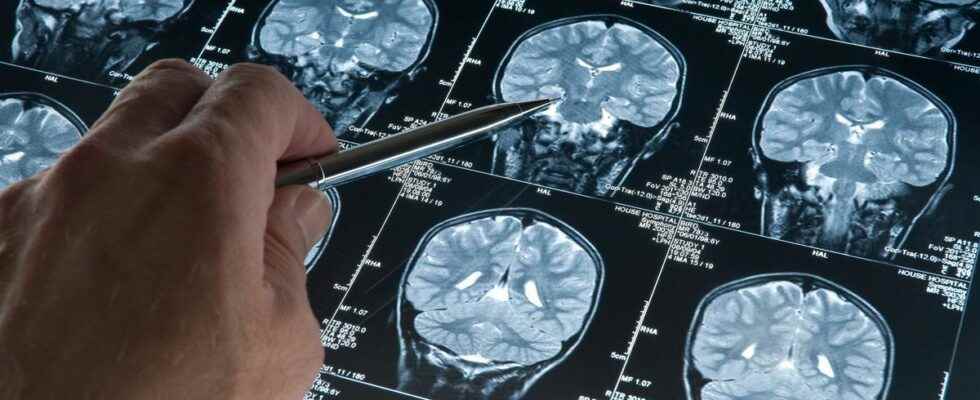Posted ,
Reading 2 mins.
in collaboration with
Dr Christophe de Jaeger (Longevity and geriatrics)
English researchers have developed an algorithm capable of early diagnosis of Alzheimer’s disease, with an accuracy of up to 98%. Results which will have to be confirmed but which could constitute real progress.
This is a discovery that could revolutionize the diagnosis of Alzheimer’s disease. According to a study revealed on June 20, researchers at Imperial College London have developed an algorithm capable of diagnosing the disease based on data from a standard MRI scan found in most hospitals.
An algorithm tested on more than 400 patients
Using data from the Alzheimer’s Disease Neuroimaging Initiative, the team tested their approach on MRI data from more than 400 patients with early and late-stage Alzheimer’s disease, healthy controls and patients with other neurological conditions, such as frontotemporal dementia and Parkinson’s disease. They also tested it with data from more than 80 patients undergoing diagnostic testing for Alzheimer’s disease at Imperial College Healthcare NHS Trust.
Targeting 115 areas of the brain at a time, which could represent anomalies, the algorithm developed by the researchers made it possible to carry out an accurate diagnosis in 10-12 hours maximum with an unprecedented accuracy of 98%.
Artificial intelligence to save time
Diagnosing Alzheimer’s disease today can take months and require a series of memory and cognitive tests, combined with scans. “In a classic diagnosis, the disease is also linked to the hippocampus only, and its atrophy”confirms Dr. Christophe Jaeger, geriatrician and French researcher specializing in the aging of the human body. “This is how we get a score on the Scheltens scale from 0 to 4 and how we can draw our conclusions. What is extremely interesting here is the fact that this artificial intelligence proposes to work, and quickly, on 115 areas, including areas that are not usually taken into account in neurodegenerative alterations. This will make it possible to be much fine, more precise, in the face of a pathology, even if the seahorses, they seem correct”.
According to the study, researchers have indeed found that there are surprising early signs of Alzheimer’s disease in brain regions never linked to the disease, including the cerebellum, which regulates physical activity, and the diencephalon. ventral, which is related to sight and hearing.
An algorithm ready for use from 2025?
Professor Eric Aboagye who led the study says: “Currently, no other simple and widely available method can predict Alzheimer’s disease with this level of accuracy, so our research is an important step forward (…) If all goes well, we hope that this technique can be made available in two to three years”.
A completely plausible statement. “With less than 500 patients tested, these researchers are still only at an evaluation phase, but it is a technique in full emergence, which already makes it possible to diagnose breast cancer in particular, and which works well. As soon as they have more elements, it can develop very quickly, in England but also elsewhere”.
At the end of the day, a huge time saving, while a mild cognitive impairment can turn into complete dementia in only 2 to 5 years.
